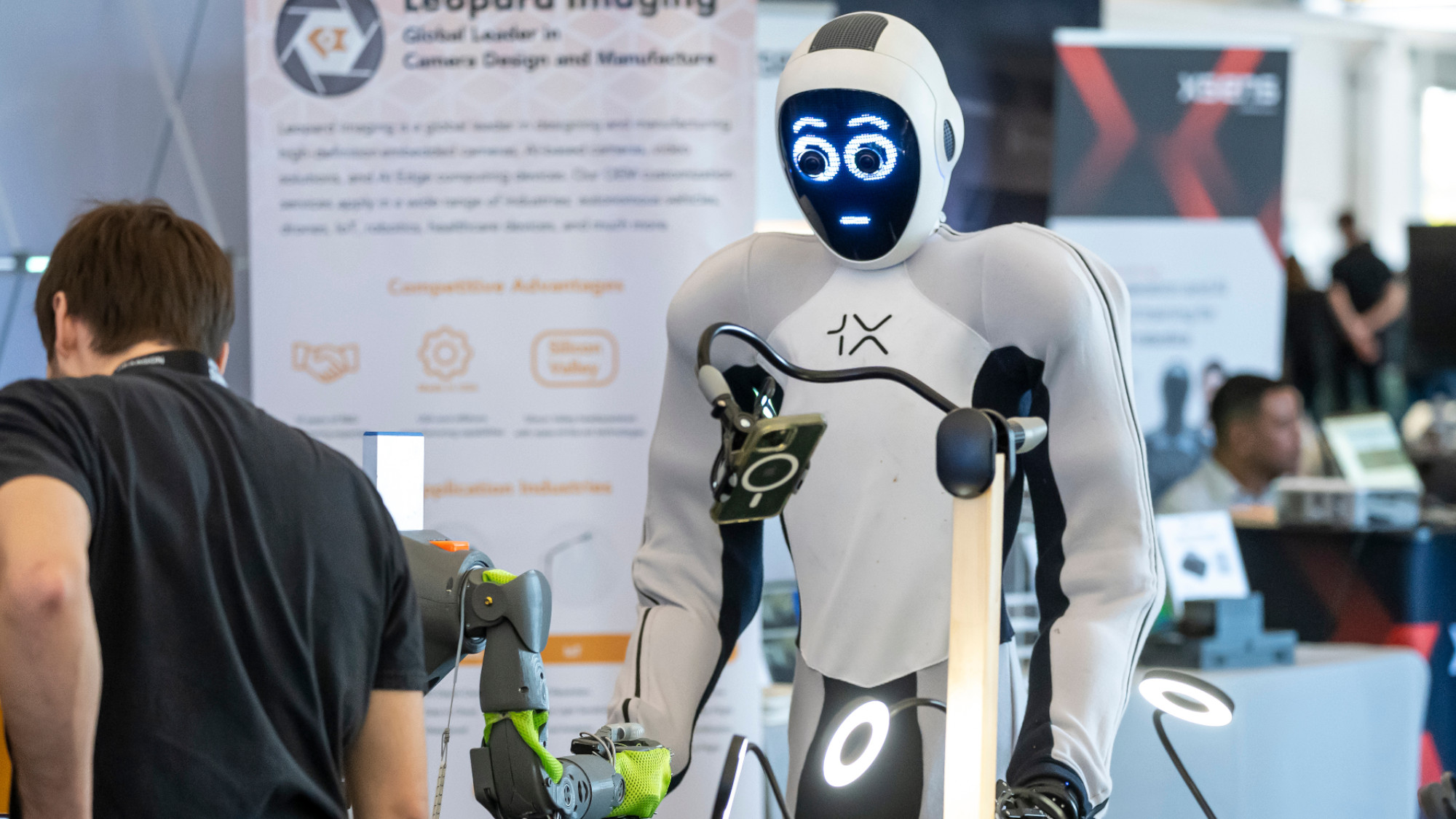The Pentagon's biggest challenge: teaching computers jazz
US defence researchers are playing jazz to an AI project in the hope that it will learn how to improvise

A free daily email with the biggest news stories of the day – and the best features from TheWeek.com
You are now subscribed
Your newsletter sign-up was successful
Forget the Men Who Stare At Goats - the latest project undertaken by US defence research is even stranger: teaching computers to play jazz.
If the plan works, it could lead one day to a robotic jazz band, though there are other, more practical, applications.
Tech Insider website says the project is funded by Darpa, the American government's Defense Advanced Research Projects Agency. It has a pedigree with funding projects with wider applications, and created the original internet in the 1960s.
The Week
Escape your echo chamber. Get the facts behind the news, plus analysis from multiple perspectives.

Sign up for The Week's Free Newsletters
From our morning news briefing to a weekly Good News Newsletter, get the best of The Week delivered directly to your inbox.
From our morning news briefing to a weekly Good News Newsletter, get the best of The Week delivered directly to your inbox.
Jazz musician and computer scientist Kelland Thomas is leading the team hoping to teach an AI (Artificial Intelligence) programme to improvise jazz. He is starting by inputting transcriptions of jazz greats such as Louis Armstrong and Miles Davis.
The programme will eventually learn to identify and analyse musical patterns - and it is hoped it will then use that knowledge to play its own improvised music. Thomas told Tech Insider: "A human musician also builds a knowledge base by practicing and by listening and by learning and studying.
"So the thing we're proposing to do is analogous to the way a human learns, but eventually it will be able to do this on a much larger scale. It can scour thousands of transcriptions instead of dozens or hundreds."
Of course, music isn't the ultimate point, the researchers hope to teach computers to think creatively. That ability would help them to communicate with humans better - and solve problems as they arise.
A free daily email with the biggest news stories of the day – and the best features from TheWeek.com
Thomas said: "The ability to, on the fly and in the moment, create melodies that are goal-directed, that are going somewhere, doing something and evincing emotion in the listener, is really, really amazing.
"In my mind, jazz and improvisation in music represent a pinnacle of human intellectual and mental achievement."
Thomas believes he will have his virtual musician improvising within five years, and he intends to create a robot that can join human musicians onstage to jam following that.
-
 Local elections 2026: where are they and who is expected to win?
Local elections 2026: where are they and who is expected to win?The Explainer Labour is braced for heavy losses and U-turn on postponing some council elections hasn’t helped the party’s prospects
-
 6 of the world’s most accessible destinations
6 of the world’s most accessible destinationsThe Week Recommends Experience all of Berlin, Singapore and Sydney
-
 How the FCC’s ‘equal time’ rule works
How the FCC’s ‘equal time’ rule worksIn the Spotlight The law is at the heart of the Colbert-CBS conflict
-
 The robot revolution
The robot revolutionFeature Advances in tech and AI are producing android machine workers. What will that mean for humans?
-
 Amazon's robotaxi looks to be Waymo's biggest competitor
Amazon's robotaxi looks to be Waymo's biggest competitorIn the Spotlight The company recently opened a new robotaxi production plant in California
-
 Secret AI experiment on Reddit accused of ethical violations
Secret AI experiment on Reddit accused of ethical violationsIn the Spotlight Critics say the researchers flouted experimental ethics
-
 Space-age living: The race for robot servants
Space-age living: The race for robot servantsFeature Meta and Apple compete to bring humanoid robots to market
-
 Is the world ready for Tesla's new domestic robots?
Is the world ready for Tesla's new domestic robots?Talking Points The debut of Elon Musk's long-promised "Optimus" at a Tesla event last week has renewed debate over the role — and feasibility — of commercial automatons
-
 Is the era of robotaxis over before it ever really started?
Is the era of robotaxis over before it ever really started?Talking Point As the nascent self-driving ride service industry gears up to expand beyond San Francisco, some tech and transportation experts say it's time to pump the breaks
-
 Are killer robots now legal in San Francisco?
Are killer robots now legal in San Francisco?feature Officials vote to allow police to use remote-controlled devices with lethal capability in ‘extraordinary circumstances’
-
 San Francisco approves police request to deploy lethal robots
San Francisco approves police request to deploy lethal robotsSpeed Read